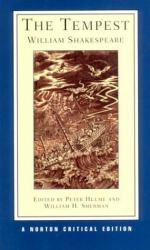|
This section contains 6,661 words (approx. 23 pages at 300 words per page) |

|
SOURCE: Pask, Kevin. “Prospero's Counter-Pastoral.” Criticism 44, no. 4 (2002): 389-404.
In the following essay, Pask describes The Tempest as an inversion of the pastoral tradition that displays politicized motifs of colonialist, aristocratic, and sexual domination.
1
At the beginning of the period in which Caliban was to acquire his strongest association with revolutionary energies of every sort, William Hazlitt lodged what remains a powerful if underappreciated critique of this association. Writing in response to the report of a lecture in which Coleridge described Caliban as “an original and caricature of Jacobinism, so fully illustrated at Paris during the French Revolution,” Hazlitt responded with some heat:
Caliban is so far from being a prototype of modern Jacobinism, that he is strictly the legitimate sovereign of the isle, and Prospero and the rest are usurpers, who have ousted him from his hereditary jurisdiction by superiority of talent and knowledge. “This island's mine, by...
|
This section contains 6,661 words (approx. 23 pages at 300 words per page) |

|


